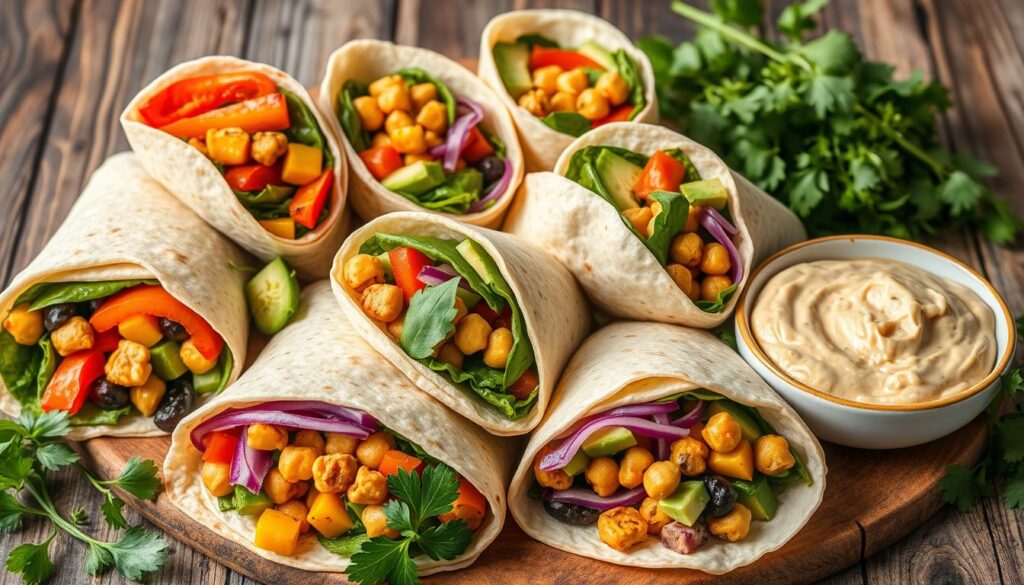CrossFit demands a combination of strength, endurance, and recovery, and nutrition plays a critical role in supporting performance. Many athletes wonder whether a vegan diet can provide enough protein, energy, and essential nutrients for high-intensity workouts. The good news is that a plant-based diet can fuel muscle growth, enhance recovery, and improve endurance while reducing inflammation with the right approach.
This guide will explore how to optimize your vegan diet for CrossFit, covering key nutrients, meal planning, and supplements to help you train at your best.
Can a Vegan Diet Support CrossFit Performance?
Debunking Myths About Veganism and Strength Training
A common misconception is that vegans struggle to build muscle due to a lack of complete protein sources. However, plant-based athletes can meet their protein needs by consuming a variety of legumes, whole grains, nuts, seeds, and soy products. Studies have shown muscle growth and strength gains on a well-planned vegan diet are comparable to omnivorous diets.
How a Plant-Based Diet Enhances Endurance and Recovery
Vegan diets are naturally rich in antioxidants, fiber, and anti-inflammatory foods, which help reduce muscle soreness and improve recovery. The abundance of complex carbohydrates from whole foods provides steady energy, preventing the crashes associated with processed foods.
Key Benefits of Vegan Nutrition for CrossFit Athletes
- Reduced inflammation due to high antioxidant intake
- Improved digestion and gut health from fiber-rich foods
- Steady energy levels with slow-digesting carbohydrates
- Faster muscle recovery due to nutrient-dense, whole-food sources
Essential Nutrients for Vegan CrossFit Athletes
To maximize strength, endurance, and recovery, CrossFit athletes must focus on key nutrients that support performance.
Protein: Building Strength and Muscle Mass
Protein is essential for muscle repair and growth. Aim for 1.2 to 2.0 grams of protein per kilogram of body weight, depending on training intensity.
Iron: Boosting Oxygen Transport and Energy
Iron helps transport oxygen to muscles, preventing fatigue and weakness. Vegan sources include lentils, spinach, tofu, and pumpkin seeds. Pairing these with vitamin C-rich foods improves absorption.
Omega-3 Fatty Acids: Reducing Inflammation and Aiding Recovery
Plant-based omega-3 sources like chia seeds, flaxseeds, and walnuts help reduce muscle soreness and inflammation. Consider supplementing with algae-based omega-3s for optimal levels.
Calcium: Supporting Bone Strength
Strong bones are essential for high-impact training. Calcium-rich plant foods include kale, fortified plant milks, almonds, and tahini.
Vitamin B12: Preventing Fatigue and Supporting Metabolism
Since B12 is primarily found in animal products, vegans must supplement or consume fortified plant-based foods to prevent fatigue and support energy metabolism.
Zinc: Strengthening Immunity and Recovery
Zinc supports immune function and muscle repair. Vegan sources include chickpeas, cashews, hemp seeds, and whole grains.
Best Plant-Based Protein Sources for CrossFit
Legumes and Beans
Lentils, chickpeas, black beans, and kidney beans provide protein, fiber, and iron, making them excellent staples.
Quinoa and Whole Grains
Quinoa is a complete protein and a great alternative to rice. Whole grains like brown rice, farro, and oats contribute to steady energy release.
Nuts and Seeds
Almonds, chia seeds, flaxseeds, and hemp seeds are rich in protein, healthy fats, and micronutrients essential for recovery.
Soy-Based Products (Tofu, Tempeh, Edamame)
Soy is one of the best complete plant-based proteins, offering all nine essential amino acids for muscle repair.
Optimizing Your Vegan Diet for CrossFit Performance
Prioritizing Protein Intake for Strength and Recovery
Distribute protein intake evenly throughout the day, aiming for 25-30 grams per meal from various sources.
Balancing Macronutrients: Carbs, Protein, and Healthy Fats
- Carbs (50-60%): Whole grains, starchy vegetables, fruits
- Protein (15-25%): Legumes, tofu, tempeh, seeds
- Fats (20-30%): Nuts, avocados, olive oil, seeds
Ensuring Proper Iron and Vitamin B12 Absorption
Consume iron-rich plant foods with vitamin C sources (citrus fruits, bell peppers) and take a B12 supplement.
Staying Hydrated and Replenishing Electrolytes
Hydration is key for performance. To maintain fluid balance, include coconut water, electrolyte-rich vegetables, and plant-based sports drinks.
Using Strategic Meal Timing to Maximize Energy
- Pre-workout: Carbs + moderate protein (oatmeal with nuts, banana with peanut butter)
- Post-workout: Protein + fast-digesting carbs (smoothie with plant protein, tofu stir-fry with rice)
Frequently Asked Questions
How Can I Get Enough Protein on a Vegan Diet?
Meeting protein needs on a vegan diet requires variety. Eat legumes, tofu, tempeh, quinoa, nuts, and seeds. Including protein-rich snacks like hummus, nut butter, and plant-based protein powders can help. Distribute daily intake and aim for 20–30 grams of protein per meal.
What Are the Best Plant-Based Foods for Recovery?
The best recovery foods provide protein and anti-inflammatory nutrients. Lentils, tofu, quinoa, hemp seeds, and nuts aid muscle repair. Antioxidant-rich fruits like berries, cherries, and citrus reduce soreness. Adding healthy fats, such as avocados and flaxseeds, enhances nutrient absorption and promotes muscle recovery.
Can a Vegan Diet Provide Enough Energy for High-Intensity Workouts?
Yes, when properly planned. A high-intensity CrossFit workout requires adequate carbohydrates, protein, and fats. Whole grains, starchy vegetables, and legumes provide long-lasting energy. Meal timing is crucial—eat pre-workout carbs and post-workout protein to fuel and recover efficiently. Hydration and electrolyte replenishment also help maintain performance.
How Do I Avoid Common Nutrient Deficiencies?
Ensuring a nutrient-dense vegan diet prevents deficiencies. Prioritize iron-rich foods, consume vitamin C for better absorption, and take a B12 supplement. Omega-3s from flaxseeds or algae oil support inflammation control. Eating diverse whole foods, including fortified plant milks and nuts, maintains balanced nutrition for strength and endurance.
Are There Any Risks to Following a Vegan Diet as a CrossFit Athlete?
A poorly planned vegan diet may lead to protein, B12, iron, omega-3s, and zinc deficiencies. Without enough calories, performance may decline. However, with proper food choices and supplementation, a plant-based diet provides everything needed for strength, recovery, and endurance, making it a viable option for CrossFit athletes.





